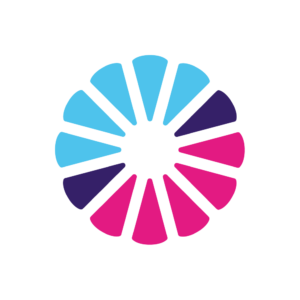Consumer Credit Counseling Service Applauds NYS Student Loan Borrower Bill of Rights
Student Loan Debt Continues to Cause Problems; Only Local Program Available
Consumer Credit Counseling Service (CCCS) announced a new initiative today, sponsored by the New York State Department of Financial Services (DFS), the first ever Student Loan Borrower Bill of Rights which outlines protections for New York student loan borrowers.
Last month, NYS DFS officials embarked on a statewide tour to advise student borrowers of their rights and hear directly from parents and students about their experiences with paying their loans. This is part of DFS’s “Step Up for Students” program where they hold town hall style events to bring together DFS representatives, including the Department’s newly announced Student Loan Advocate, with student borrowers, their families, college financial aid officers, legislators and the general public to hear and address concerns about the growing issue of student debt.
Underscoring these new efforts is the undeniable fact that student loans continue to negatively impact millions of millennials. At present time, 1 in 4 Americans have student loan debt, approximately 45 million people.
As the local nexus for student loan debt issues, CCCS is working to expand its student loan counseling services which are the only available services in the region.
The fact of the matter is that with average student loan debt per graduate a staggering $37,200—typical monthly payment $393/month--student loans continue to create problems for individuals, families and the economy at large.
CCCS’ collaboration with NYS is an added measure to protect the 2.8 million student borrowers living here.
“As the federal government steps down from protecting student borrowers, DFS will step up for students by enforcing our state’s consumer protection laws and making sure borrowers know where to turn when faced with predatory or unfair lending practices,” promised Department of Financial Services Superintendent Linda A. Lacewell.
The Student Loan Borrower Bill of Rightshighlights significant protections that DFS’s regulation of student loan servicers provides to student loan borrowers. They include borrowers’ entitlement to:
- Detailed financial aid award letters from schools in New York;
- Clear, accurate and complete information about the borrower’s loan terms;
- Information about any available loan repayment plans and options;
- Information about any available discharge, forgiveness, and cancellation options;
- Loan payments applied to the borrower’s account in best interest of the borrower;
- Knowledgeable customer service representatives who treat you respectfully and fairly;
- Detailed loan account histories that are easily and securely accessible online;
- Seamless transfers if your loan is serviced by a new company
- Accurate payment history reporting to credit agencies; and
- Responses to complaints you make to your servicer.
Anyone seeking assistance navigating student loan repayment should contact CCCS at 712-2060. Many individuals with student loans feel overwhelmed with anxiety and fear as they try to set up payment plans, with some falling prey to the abundance of unscrupulous companies claiming to help. At CCCS, we specifically designed our program to meet the needs of this growing population segment.
CCCS’ Student Loan Counseling Program provides the assistance, support, direction and sometimes hand-holding that our clients need, helping them create a solid plan to pay their debt.
We began the Student Loan Counseling Program in 2012, in response to the growing need for education and assistance with student loans. In the past seven years, we have helped nearly 1,000 individuals achieve a level of financial freedom previously unknown.
In our program, Nationally Certified Student Loan counselors work to:
• Evaluate student loan debt (current or in default)
• Explore options for student loans including deferments, forbearances, alternative repayment plans, and consolidation loans and forgiveness options
• Assist in applying for the appropriate option
• Assist in communicating with the lender, as needed
• Review credit score, credit report and living expenses
• Set appropriate financial goals
The financial counseling services we provide help student loan borrowers chart a course for financial stability. Most borrowers are young and economically unstable, usually very low income at this point in their lives. Many of our clients are Millennials, saddled with, and drowning in student loan debt. Every day we see young people with substantial student loan debt who had only passing knowledge of what the ramifications of missed payments would be.
Our goal is to help our clients achieve financial stability and we give them the tools and support needed to get to that point. We recommend our services to anyone who wants to achieve a financially healthy life. We are not just for people in crisis—we can help people who proactively want to take charge of their finances, creating budgets and developing spending plans so that they can live a stable and successful life free from financial stress.

